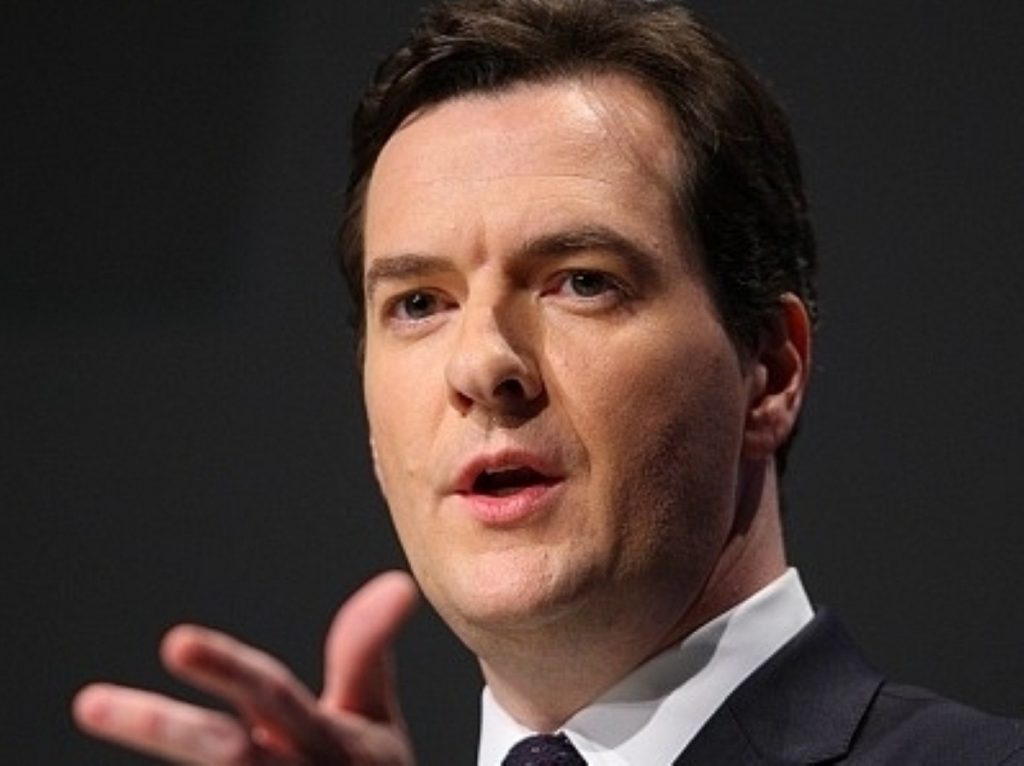Budget 2011 analysis: Don’t mention the spending cuts
George Osborne’s first March Budget promised a panacea for the UK economy’s growth problems, but those spending cuts are hard to ignore.
Just a few short months have passed since the chancellor presented the comprehensive spending review to parliament, slashing government departments’ budgets by an average of 19%. Osborne struggled to make us forget about the spending cuts. His emphasis makes political sense, even if it doesn’t change the landscape of the main political battlefield for the next five years.
Economies are slow moving beasts. The British media’s focus on the deficit – still an eye-watering £146 billion – is, by its standards, relatively big-picture. Still, some analysts think zooming out even further might not be a bad idea. The National Institute for Economic and Social Research (Niesr) thinktank says returning to growth is about much larger headaches than simply solving the deficit. It doesn’t really matter if the government’s spending targets are missed. Instead, expanding demand is the key to increasing growth.


The coalition has a mixed record on its proposals. Niesr insists that big-picture growth requires boosting elite universities to raise the rate of technical progress. A shame, therefore, that the higher education sector is perpetually wailing in pain at the spending cuts it faces. Encouraging more immigration, especially among skilled workers, would also help. Again, ministers are doing all they can to clamp down on allowing more people into the country.
The government is on the same page in some other areas. Just as important in helping the labour supply is cutting benefits, whose recipients are low productivity. Iain Duncan Smith’s reforms are set to do just that. Niesr also recommends that making people retire later will help consumption. The coalition has already announced that the elderly won’t be able to put their feet up until they’re 66, not 65.
There is a mismatch between the importance of these ideas, which will be the real determinants of how much the UK economy grows before 2020 arrives, and the rhetoric of the politicians – and therefore of the nation’s newspapers – tomorrow. The 2011 Budget will be remembered as one in which the chancellor fired out a scattergun approach, bombarding the economy with small-scale measures. He hopes that, taken together, they will make a difference.
Relieving the nation’s petrol price misery may have little to do with growth, but it is what will end up grabbing the headlines.
One poll by ComRes recently suggested that 49% of voters would seriously consider switching party to one which committed itself to lowering fuel duty. There has been a battle fought on this issue within government over the last few months, as the Treasury struggles to abandon this very useful money-spinner. A 1p increase, set to be introduced next month, would have resulted in every litre costing close to an extra 5p at the pumps.
In the event, Osborne could not resist the temptation. What else could he do in a climate where petrol costs £1.30 a litre? By cutting fuel duty by 1p, he has extracted the greatest political advantage out of his biggest ‘sweetener’ measure. It is a shrewd measure, even if it does not quite excuse his cringeworthy conclusion that “we have put fuel into the tank of the British economy”.
The chancellor’s steps may not be enough, though, in the wider context of the great political struggle of this parliament. This battle, over the coalition’s approach to the economy, is entering a potentially decisive phase.
Osborne knows this more than anybody. He was personally very surprised to discover that fully 40% of the public approved of his performance last year, compared to just 23% who were dissatisfied. That positive rating was more impressive than any of the Conservative chancellors in power under Margaret Thatcher and John Major, according to Ipsos Mori. Yet the public are fickle. Now 36% are satisfied, compared to 45% dissatisfied. One per cent more believe Ed Miliband’s new economic sidekick, Ed Balls, would do a better job in No 11.
The battle for public opinion is reaching a critical stage. The Conservatives are still seen to have the best policies on the economy – just. In June 2010, 32% more agreed than disagreed that “in the long-term, this government’s policies will improve the state of Britain’s economy”. That advantage has dwindled to just six per cent, largely because the public’s acceptance of the need for public service cuts is falling too. If it wasn’t for the fact that most blame the last Labour government for the mess we’re currently in, the opposition’s advantage in the polls might be more concrete than it is at present.
Coming up with a Budget for growth is an important step in this long-running tug-of-war. On the one hand, the coalition is grimly clinging on to the logic that swift, painful action to tackle the deficit will help the economy return to growth by 2015. On the other, Labour’s preference for a slower, incremental approach continues to attract many.
There was only so much that Osborne could do to change that dynamic when he stood up to the despatch box this lunchtime. His proposals will not transform the UK economy, although on issues like fuel duty he will provide some short-term respite. Instead what Osborne had to say will prove the latest instalment in an ongoing saga. The story began with Alistair Darling’s 2008 Pre-Budget Report. Its latest chapter came in last year’s comprehensive spending review. The book will close on May 5th 2015, when voters finally pass judgement. This Budget is important. But, for now at least, unpopularity caused by spending cuts seems likely to overwhelm Osborne’s fledgling plans for growth.












